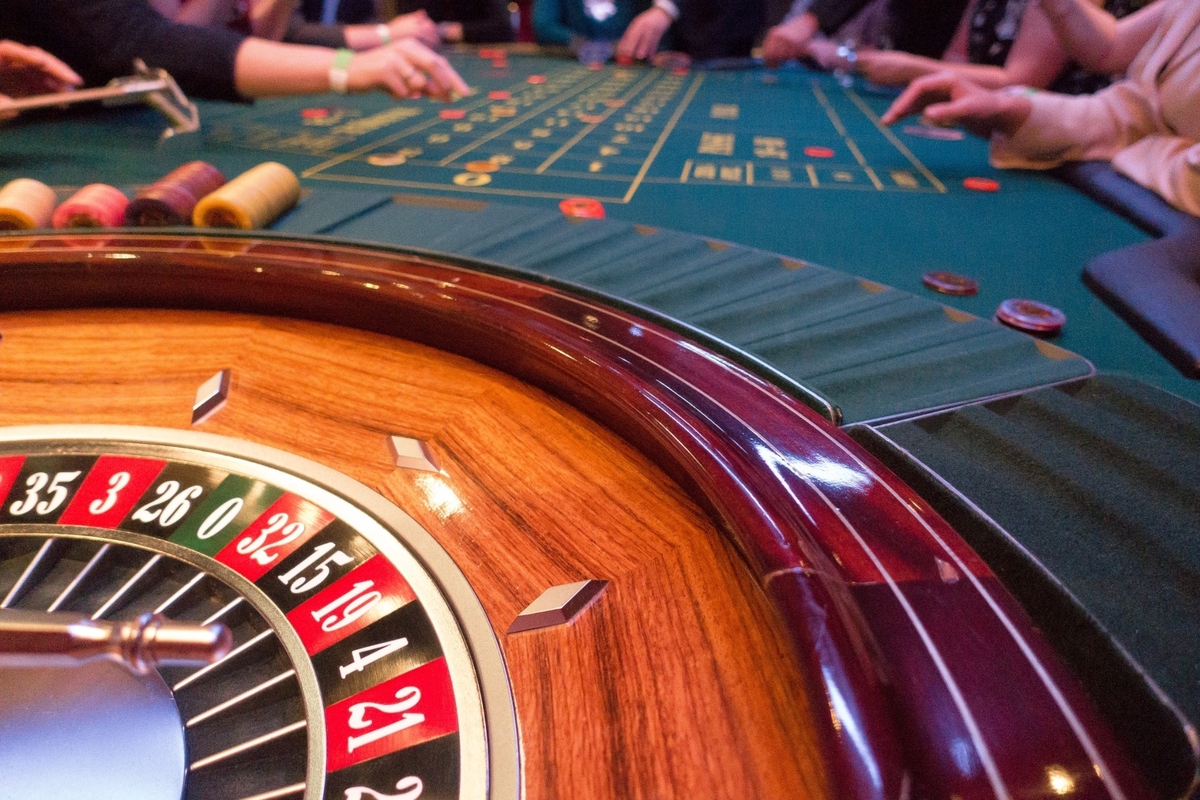
Casino entertainment have long been a captivating source of amusement, drawing countless of players from different cultures around the globe. From the glitzy casinos of Las Vegas to the thriving gambling halls of Macau, these games serve as a common thread that connects people across various backgrounds. QQ88 OKVIP The allure of luck, tactics, and uncertainty entices not only those seeking to win money but also those looking for a feeling of belonging.
The influence of casino games extends far beyond the gaming floor. They often reflect the social norms and principles of the communities in which they prosper. Games such as poker, blackjack, and roulette have woven themselves into the fabric of popular culture, influencing multiple fields from movies to fashion. As we explore this intriguing intersection of gambling and society, we can comprehend better how casino games shape and are influenced by the environment surrounding us.
Historical Progression of Casino Games
The origins of casino activities can be tracked back to old cultures, where betting in different forms was widely engaged in. In China, around 2300 BC, a form of luck game known as Keno was well-known, while in historic the Roman Empire, soldiers would often gamble on the results of their games. The idea of using randomness for entertainment and profit evolved over the centuries, leading to the establishment of more formal games. By the final Middle Ages, gambling houses started to appear in European nations, especially in the Italian peninsula, which introduced early forms of popular games still practiced today.
As gambling gained recognition in the continent, the 17th and 18th centuries saw the rise of gaming houses as dedicated locations for betting. The earliest official gaming venue, the Ridotto, was established in Venice in 1638, featuring games like Baccarat and the game Faro. This time marked a major turning point, as casinos started to draw not just the high society but also the growing middle-income class. The refinement of activities grew, leading to the creation of new regulations and variations that improved the play experience.
In the 19th century, the era of industrialization and shifts in societal conventions further changed the terrain of casino activities. The introduction of roulette and contemporary one-armed bandits attracted a broader audience, and gambling establishments became seen as legitimate forms of entertainment. This period witnessed the globalization of casino activities, as casinos extended from European nations to the Americas, culminating in the establishment of the famous Strip of Las Vegas in the 20th century. The evolution of gambling games has persisted into the present day, including new technologies and digital sites, rendering them accessible to a worldwide audience.
## Cultural Significance within Various Communities
Gambling games have profound cultural value in many cultures throughout the world. In Las Vegas, the very essence of the city is woven around casinos, where gambling is not just a hobby but a central aspect of entertainment and community interaction. The vivid lights and vibrant atmosphere attract countless individuals, showcasing how gambling activities can shape local financial landscapes and cultural identities. This environment transforms the notion of recreation into an enriching experience that influences fashion, music, and even movies.
Conversely, some societies approach wagering with an air of caution, seeing it through the lens of morality and customs. For instance, in numerous Oriental cultures, games like Mahjong and Pai Gow Poker are rich with history and have significant social meanings. These games are often played during meetings and festivities, fostering community bonds and solidifying family ties. The act of engaging in these games goes above mere entertainment, reflecting principles such as respect for elders and the value of collective enjoyment.
Simultaneously, in continental countries such as the principality of Monaco and Rome, casino games serve as symbols of luxury and refinement. The elegant atmosphere of these locations attracts both tourists and locals, upholding a sense of distinction and exclusivity. The art of poker and the strategic features of games like baccarat are celebrated, influencing interpersonal interactions and creating an allure that captivates a heterogeneous audience. This underscores how casino games can concurrently mirror and shape societal views towards danger, benefit, and community interaction.
Economic Impact and Tourism
Casino games play a crucial role in the economic landscape of many areas, particularly those that rely heavily on visitor traffic. The revenue produced from casino operations fuels local economies, creating jobs not only within the casinos themselves but also in related sectors such as hospitality, dining, and entertainment. This surge of tourists, drawn by the allure of games and the overall gaming environment, stimulates expenditure across multiple local enterprises, contributing to the economic health of the region.
The presence of casinos often leads to the construction of infrastructure, including lodging, transportation systems, and recreational facilities. These improvements are essential in enhancing the overall tourist experience, making destinations more appealing to tourists. Additionally, many casinos invest in local communities through support of activities and philanthropic initiatives, further embedding themselves into the community structure of the region. Such contribution not only supports economic growth but also fosters a positive image of the casino industry.
In addition, the worldwide appeal of casino games drives competitive tourism, with regions vying to attract gamblers from around the world. Iconic destinations like Las Vegas and Macau have become synonymous with casino culture, drawing millions each year. This competitive edge encourages innovation and diversification within the gaming industry, influencing developments in entertainment and hospitality that resonate beyond their limits. The consequences of this visitor influx extend wide, impacting local financial health and cultural interactions on a worldwide scale.